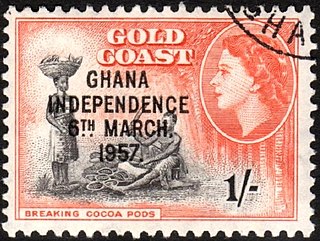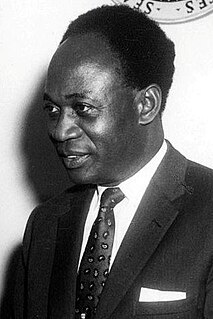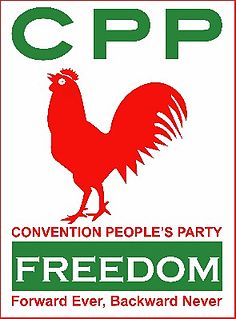This page is based on this
Wikipedia article Text is available under the
CC BY-SA 4.0 license; additional terms may apply.
Images, videos and audio are available under their respective licenses.

Sylvanus Epiphanio Olympio was a Togolese politician who served as Prime Minister, and then President, of Togo from 1958 until his assassination in 1963. He came from the important Olympio family, which included his uncle Octaviano Olympio, one of the richest people in Togo in the early 1900s. After graduating from the London School of Economics, he worked for Unilever and became the general manager of the African operations of that company. After World War II, Olympio became prominent in efforts for independence of Togo and his party won the 1958 election making him the Prime Minister of the country. His power was further cemented when Togo achieved independence and he won the 1961 election making him the first President of Togo. He was assassinated during the 1963 Togolese coup d'état.

Elections in Benin take place within the framework of a multi-party democracy and a presidential system. Both the President and the National Assembly are directly elected by voters, with elections organised by the Autonomous National Electoral Commission (CENA).
The Accra Riots started on 28 February 1948 in Accra, after a protest march by unarmed ex-servicemen was broken up by police, leaving several leaders of the group dead. Among those killed was Sergeant Nii Adjetey,
who has since been memorialized in Accra. In January 1948, the Ga chief Nii Kwabena Bonne II had organized a boycott of all European imports in response to their inflated prices, and the 28 February incident is considered "the straw that broke the camel's back", marking the beginning of the process of independence for the Gold Coast as Ghana - the first African colony to achieve this.
Kofi Abrefa Busia was Prime Minister of Ghana from 1969 to 1972. As a nationalist leader and Prime Minister, he helped to restore civilian government to the country following military rule.
Nana Joseph Kwame Kyeretwie Boakye Danquah, PhD was a Ghanaian statesman, pan-Africanist, scholar, lawyer, historian and one of the founding fathers of Ghana. He played a significant role in pre- and post-colonial Ghana, which was formerly the Gold Coast, and in fact is credited with giving Ghana its name. During his political career, Danquah was one of the primary opposition leaders to Ghanaian president and independence leader Kwame Nkrumah. J. B. Danquah was described as the "doyen of Gold Coast politics" by the Watson Commission of Inquiry into the 1948 Accra riots.

The Parliament of Ghana is the legislative body of the Government of Ghana.
The United Gold Coast Convention (UGCC) was a political party whose aim was to bring about Ghanaian independence from their British colonial masters after the Second World War.

Elections for the Legislative Assembly were held in the Gold Coast on 17 July 1956. They were won by Kwame Nkrumah's Convention People's Party, which took 71 of the 104 seats.

A constitutional referendum was held in Ghana on 27 April 1960. The main issue was a change in the country's status from a constitutional monarchy with Elizabeth II as head of state, to a republic with a presidential system of government.

A constitutional referendum was held in Ghana on 31 January 1964. The proposed amendments to the constitution would turn the country into a one-party state and increase the powers of President Kwame Nkrumah. With results showing that an implausible 99.91% of voters supported the amendments, the referendum was accused of being "obviously rigged". Voter turnout was reported to be 96.5%.

Elections for the Legislative Assembly were held for the first time in the Gold Coast on 8 February 1951. Although elections had been held for the Legislative Council since 1925, the Council did not have complete control over the legislation, and the voting franchise was limited to councils of chiefs. This was the first election to be held in Africa under universal suffrage.

Parliamentary elections were held in Ghana in 1965. As the country was a one-party state at the time, no parties except President Kwame Nkrumah's Convention People's Party (CPP), were allowed to participate.
Leaders of the 1966 military coup, including army officers Colonel E.K. Kotoka, Major A.A. Afrifa, Lieutenant General (retired) J.A. Ankra, and Police Inspector General J.W.K. Harlley, justified their takeover by charging that the CPP administration was abusive and corrupt. They were equally disturbed by Nkrumah's aggressive involvement in African politics and by his belief that Ghanaian troops could be sent anywhere in Africa to fight so-called liberation wars, even though they never did so. Above all, they pointed to the absence of democratic practices in the nation—a situation they claimed had affected the morale of the armed forces. According to General Kotoka, the military coup of 1966 was a nationalist one because it liberated the nation from Nkrumah's dictatorship—a declaration that was supported by Alex QuaisonSackey, Nkrumah's former minister of foreign affairs.

Ghana gained independence from the British on 6 March 1957. It is a member of the Commonwealth of Nations. The country became a republic on July 1, 1960.
The National Reconciliation Commission was established in January 2002 by the parliament of Ghana. The goal of the commission was to establish an "accurate, complete and historical record of violations and abuses of human rights inflicted on persons by public institutions and holders of public office during periods of unconstitutional government." The Commission was formed after a new democratic party won the elections in 2000. The Commission covered human rights violations in Ghana from 1957 to 1993. It looked into government abuses and military coups staged by former president Jerry Rawlings. The members of the Commission worked until the end of 2004.
Akua Asabea Ayisi was a feminist, former High Court Judge and first female Ghanaian journalist. Akua Asabea Ayisi trained as a journalist with Mabel Dove-Danquah and Kwame Nkrumah, first president of Ghana, during pre-colonial Gold Coast. She worked with the Accra Evening News daily newspaper established by the former president in 1948, writing articles to mobilize people to oppose colonial rule. She particularly edited the "Women's column" of the newspaper, a section that was introduced by Nkrumah to showcase "the elevation of women in the country via his expansion of the educational provision for girls".













